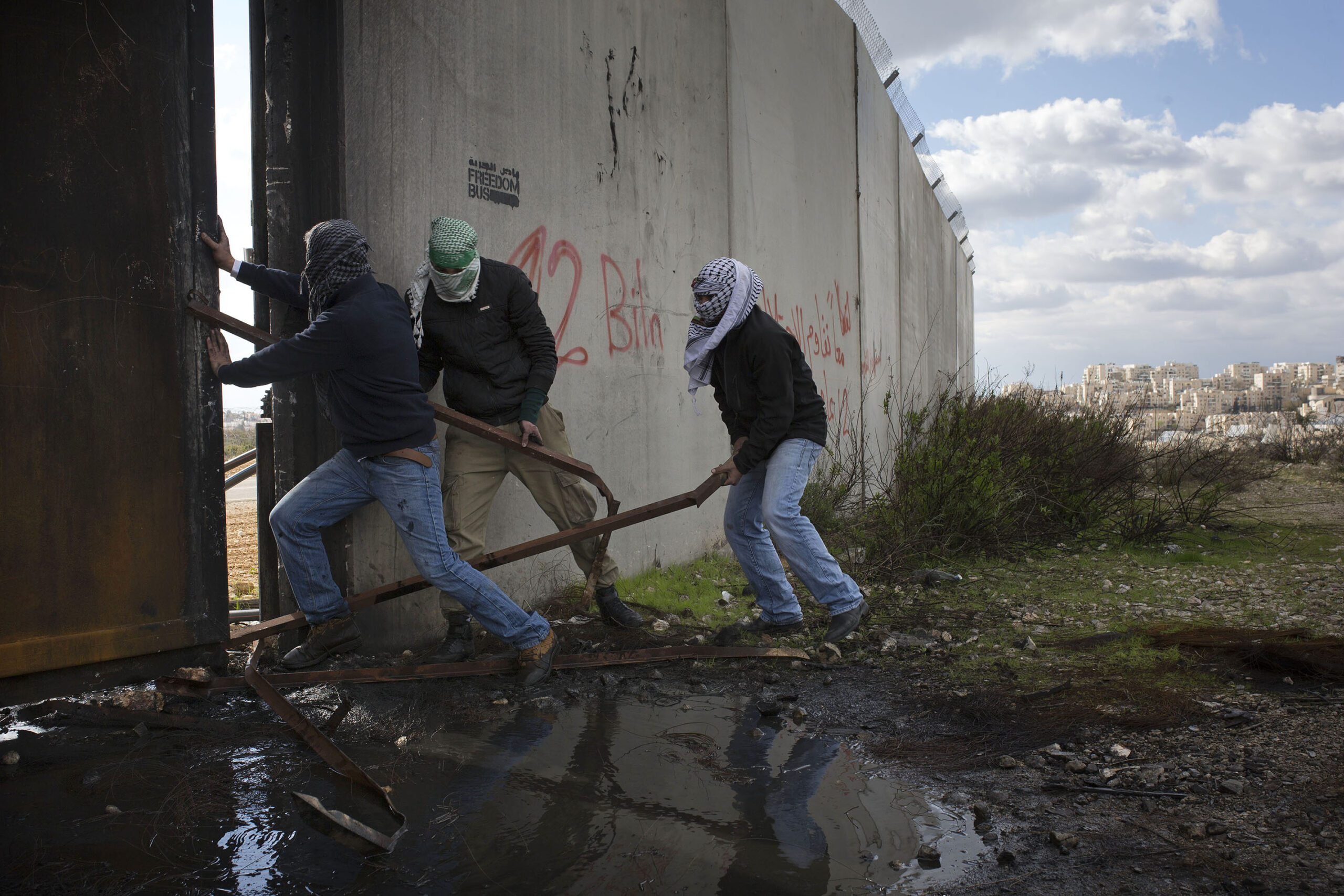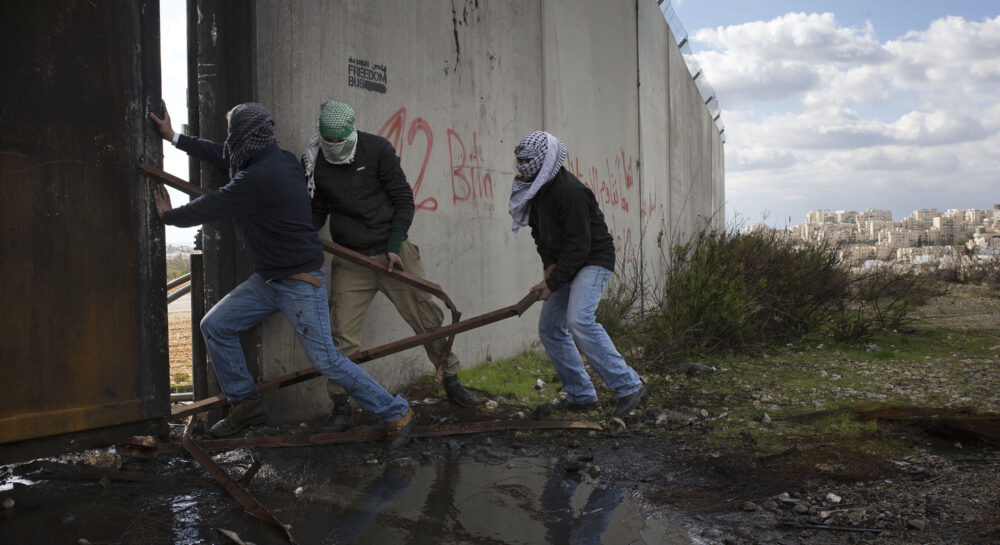Hamish McPherson replies to David Lockwood’s article that argued two-states is dead but a single state doesn’t settle the democratic questions of the Middle East.
Labor Tribune believes that open debate of theory and program, strategy and tactics, is vital if the working class is to learn the method of Marxism as a tool for self-liberation. It is not enough to just deliver ‘the line’ and keep divisions internal. That method leads to splits and a lack of self-activity. What is needed is open polemic with unity in action. This response is published in that spirit.

In his article Stateless in Gaza, David Lockwood explores the question of what form of Palestinian state can be meaningfully fought for and achieved. Based on evidence Lockwood rightly rejects the mirage of the ‘two-state solution’ offered by rulers both east and west and reminds us that Israel is determined to establish a ‘Greater Israel’ in the whole of historic Palestine.
The article critiques the alternative demand for a single democratic, secular or civil state in historic Palestine, in which all people, Palestinian and Jewish-Hebrew, would be accorded equal civil and political rights.
Lockwood characterises a single democratic state as ‘non-starter’ due to the predominance of a ‘historically constituted national grouping of Hebrew speakers’ who will oppose and resist any change to their dominant position in the ‘privileged, oppressor nation’ of Israel, unless they have a better offer, namely, being part of a ruling class in a socialist federation of the region.
While it is true that the Israeli state and most Jewish citizens will resist any change, this should not set the parameters for the political objectives of either the Palestinian national liberation movement or of socialists.
It isn’t just Likud and the far-right but the whole Israeli state and Zionist project that already resist any moves toward equality and justice for Palestinian people. We see the reality of that reactionary resistance in the ethnic cleansing and war crimes being committed in the West Bank and Gaza. However, we also know that the reaction is creating a crisis inside Israeli society as it becomes more militarised, isolated and divided.
The Hebrew-Jewish population of Israel has agency and the mass protests against Netanyahu’s Gaza war and the rising number of young people evading or refusing conscription are signs of division and internal struggle, even if still limited and dominated by Zionist ideas.
The genocidal war in Gaza has shocked the world into action and isolated Israel on the world stage. It has also led to unprecedented public opposition to Israel’s crimes of occupation among sections of the Jewish population globally, including in the United States.
This isolation is keenly felt by many Israeli citizens and poses a sharp question to them – will they continue as a militarised and privileged national group, constantly at war to maintain dominance, or to find a democratic accommodation with the other peoples of Palestine and the region?
The call for a single democratic state in Palestine was the historic demand of the Palestinian national liberation movement, until it was abandoned by Fatah during the Oslo Accords for the promise of a two-state solution. Other key factions including Hamas has now effectively accepted a two-state model based on the 1967 borders on a ‘pragmatic’ basis by saying a Palestinian state can exist in those borders.
A single democratic Palestine or Greater Israel?
The call for a single democratic state has returned as a legitimate political demand due to the facts on the ground. Faced with the reality of ‘Greater Israel’, and the failure of the Oslo process, Palestinian activists and political leaders have developed an analysis of Israel as an apartheid and colonial-settler state based on Jewish labour that systematically expels, excludes and dominates the Palestinian population.
The Israeli apartheid state subjects millions of Palestinians to unequal status and oppression, both in the Occupied Territories under military rule and as second-class citizens of Israel. A great number of Israeli laws, particularly relating to property, inheritance and civil rights, accord Palestinian citizens of Israel lesser status and rights. Israel allows for Aliyah – the right of all Jews to settle in Israel, no matter whether they have any connection to the country. But it denies the right of return to Palestinian refugees, displaced by the Nakba in 1948.
This year, the Knesset, Israel’s parliament, voted 71-13 to annex the West Bank. While that vote is non-binding on the government, by insisting on sovereignty over historic Palestine, the Knesset has created a situation where within those borders are roughly equal numbers of Jewish or Hebrew people and Palestinians, about 6.8 million of each. This demographic fact partly drives the relentless oppression and attempted ethnic cleansing in Gaza and the West Bank.
Significant Palestinian political groups (Palestinian Youth Movement, Palestine National Initiative, One Democratic State Campaign) now reconceive the national liberation struggle as being for equal democratic and civil rights, including the right of return, across the whole of historic Palestine and in solidarity with the democratic movements of the region.
Adopting these demands has enabled activists and fighters across historic Palestine to find unity in their struggles against the relentless process of Zionist dispossession; home demolitions, destruction of farmlands, restrictions on movement, arbitrary arrests and armed attacks by settlers or the Israeli military.
This was best demonstrated in the wave of strikes and protests that occurred across both the Occupied Territories and Israel itself in May 2021. This movement arose in response to Israeli threats to Palestinian homes in East Jerusalem, provocations at Al Aqsa Mosque and violent attacks on Palestinian towns and villages in Israel itself. Actions were generally led by young Palestinian activists and showed the potential for a struggle for democracy across historic Palestine, not bound by the narrow limits of two-state Palestinian nationalism.
It is true, as Lockwood argues, that a democratic settlement or state in Palestine cannot be achieved within Palestine alone. In that sense a ‘single’ democratic state standing alone is unlikely to be achieved.
US imperialism and complicit Arab regimes
Israel exists as a privileged client state of the US and within a wider system of militarised and authoritarian states across the Arab world. These all buttress and support the national chauvinism of Israel. The military dictatorship in Egypt for one has refused to challenge Israel’s control of the Rafah crossing into Gaza to allow free passage of aid.
Defeating Israel’s supremacy over the peoples of Palestine will require breaking the power of the US and the authoritarian regimes throughout the region. This can occur as the working classes and mass of people of the Arab states organise and fight in their own material and political interests, for democracy and socialism. The Arab Spring of 2011-12 showed the great possibility for regional class struggle and the overthrow of the corrupt regimes. The defeat of these movements has only delayed a future reckoning.
While a democratic resolution in Palestine ultimately relies on a wider regional struggle for democracy and socialism, it cannot be postponed until that is achieved. In that context the Palestinian demand for a single democratic secular or civil state is a principled position to organise and fight for, be it on the streets of Ramallah, Beirut, Rome or Brisbane. The same logic applies in all the leading capitalist states that have been exposed as supporting the brutal Israeli occupation and massacre in Gaza. While the Australian Government has ‘recognised’ Palestine it also continues to award lucrative defence contracts to Israeli military companies, export F-35 jet parts and provide intelligence through Pine Gap to Israel. Our main enemy is at home, the Australian capitalist and political class that governs only in its self-interest at home and abroad.

